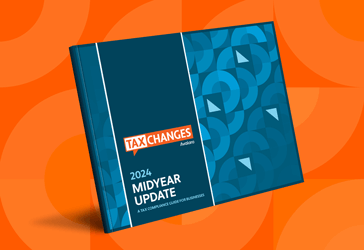Using technology can improve customer experience and build loyalty
What turns a browser into a customer, and a customer into a repeat customer? It may be as simple as listening and helping shoppers find what they want. That can be done face-to-face in a brick-and-mortar store. For online sellers, it requires technology.
Though brick-and-mortar retail stores have reopened nationwide, the coronavirus (COVID-19) continues to drive record online sales. July’s ecommerce sales were lower than June’s, but still up 55% year over year. Adobe Analytics expects online sales for the year to surpass 2019 online sales by October 5, 2020. For many consumers, including some who didn’t shop online before the pandemic, ecommerce is still the best option.
To capture new customers and retain old ones, retailers must provide the essentials: easy browsing, a secure ecommerce store, seamless checkout, and trackable delivery. Yet today’s savvy consumers often want more. They like to see themselves wearing your products. They may want to connect with a sales associate — like they do when shopping in person.
It can all happen online with the right technology. Chatbots powered by artificial intelligence (AI), authentication tools, and curation services can help customers navigate product catalogs. When a shopper needs more detailed assistance, human experts jump in.
Business intelligence platform PSFK examines how technology helps shape customer experience in its Digital Commerce Playbook. Key findings on the importance of customer education and assistance are summarized below. All figures and statistics are from the report.
Help them find what they want
Customers value clear information, well-timed input, and expert opinions. That’s hard to offer when consumers are anonymous, but increasingly, online shoppers are letting themselves be known. About 58% of millennials are willing to share personal information in order to get attuned product recommendations. And 36% of customers (not just millennials) expect a company to be able to provide “relevant recommendations for additional products and services after a single purchase.”
It would take an army of sales associates to offer that sort of personalized shopping experience for all browsers. Fortunately, AI-enabled support can assist with the early stages, narrowing down choices and gleaning preferences. If more personalized help is needed, it can gather information to share with human successors.
Be there for them
Consumers want to feel connected, perhaps now more than ever. Prior to the pandemic, 72% of consumers aged 18–64 said their overall customer experience would be better if they could text with a live agent in real time — too many of us have spent too many hours of our lives caught in endless cycles of automated help lines that provide no answers. Offering different, more human ways to connect can give you a competitive edge.
Authenticate
Consumers want access to human help, but they also want assurance the products they’re buying are authentic. And unfortunately, the rise of marketplace sales was accompanied by an increase in counterfeit products. More than 70% of counterfeit products are purchased through online marketplaces, and consumers spend almost $0.5 trillion annually on counterfeit goods.
Marketplaces are aware of the problem and working to stem the tide of counterfeit sales. Meanwhile, customers need assurance they can trust retailers. You can provide that via AI verification and blockchain tracking, among other tools.
In short, people like supporting businesses they can trust. They respond to ecommerce stores that curate selections to their taste and provide personalized assistance. It’s what they expect when they shop in person, and they’re coming to expect it online. Retailers that can fulfill those expectations are likely to outperform those that don’t.
Want more key insights about how technology can improve consumer engagement? Get the report.
Stay up to date
Sign up for our free newsletter and stay up to date with the latest tax news.













